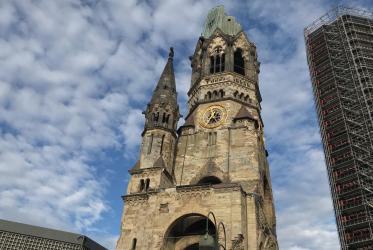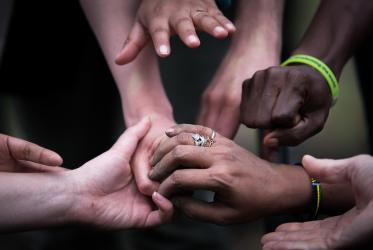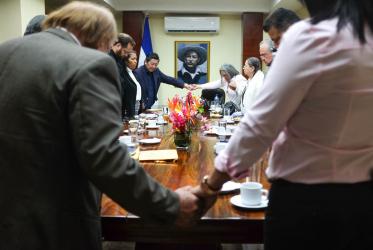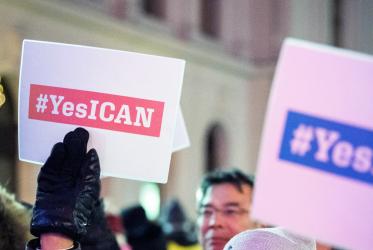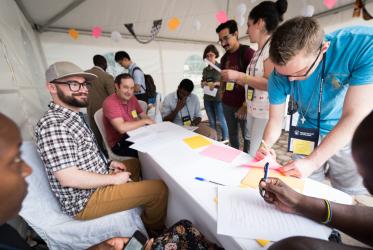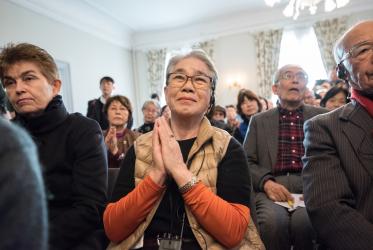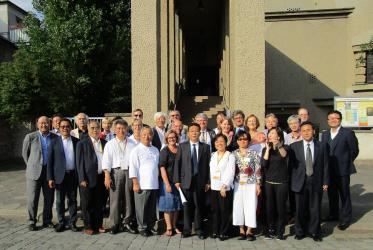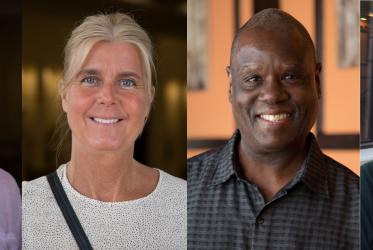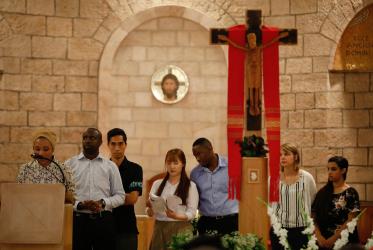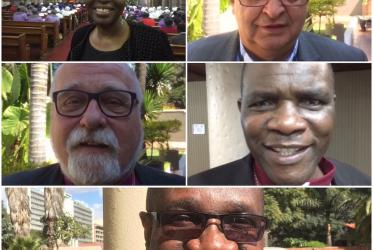Displaying 81 - 100 of 148
22 November 2018
WCC continues to receive 70th anniversary greetings
14 November 2018
How can you help refugees?
11 October 2018
"Diversity" documentary reflects on maze of self-identity in Canada
27 September 2018
#WCC70: A story of life
07 June 2018
‘Sokoni’ transforms marketplace into mission
13 March 2018
Nobel winners plan next steps for banning nuclear weapons
10 December 2017
Norwegian visit enriches ecumenical experience
28 September 2017
Peace consultations of hope
07 July 2017
Voices from a solidarity visit to Zimbabwe
25 May 2017


